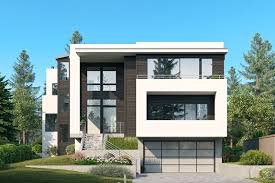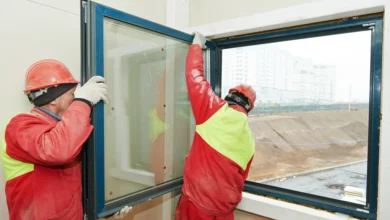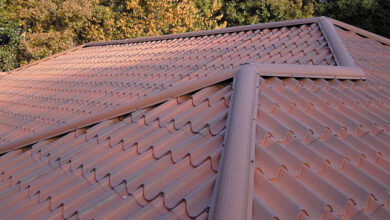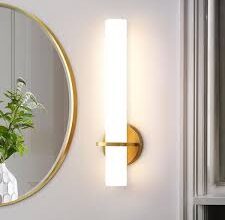Should You Lease or Buy Solar Panels for Your Three Story Home?

Are you thinking about solar energy for your three story home? If your answer is yes, then, you’ll need to decide between leasing and buying your solar panel system. Let’s break down the pros and cons of each option so you can choose the one that fits your budget, long-term plans, and energy needs.
This post will help you make a smart choice by comparing leasing and buying solar panels in a way that’s easy to understand. Read on to help you make the right decision today.
Understanding Solar Leasing
Leasing solar panels involves entering into an agreement with a solar company. They install the panels on your property and keep ownership. You then pay the company a monthly fee to use the electricity generated by the system.
This arrangement often requires little to no upfront investment. This makes it an attractive option for homeowners who may not have the capital for a significant initial expenditure.
One of the primary benefits of leasing is the lack of maintenance responsibilities. The leasing company typically handles all installation, maintenance, and repair costs. This offers you peace of mind and convenience.
Additionally, lease agreements often include performance guarantees. This ensures that the system produces a minimum amount of energy each month.
However, leasing has its downsides. The most notable is the long-term cost. You avoid a big upfront payment, but, leasing costs can add up to more than buying.
Additionally, leasing does not allow you to take advantage of federal tax credits or other incentives. These benefits go to the system’s owner – the leasing company, not you.
The Case for Buying Solar Panels
Buying solar panels means you purchase and own the solar panel system installed in your home. This option typically requires a significant upfront investment. The average solar panel price is around $12,000, but still depends on the size and location of your home.
However, several financing options are available, including solar loans and home equity loans. These options can make the initial cost more manageable.
Ownership of the system brings several distinct advantages. First and foremost, you are eligible for federal tax credits and potentially other local incentives. This can significantly reduce the overall cost.
For instance, the federal tax credit allows homeowners to deduct a percentage of the cost of installing a solar energy system from their federal taxes. This benefit can result in substantial savings.
Another significant advantage of buying is the long-term financial benefit. Once the system is paid off, the electricity it generates is essentially free. This leads to considerable utility savings over the lifespan of the panels, which can last 25 years or more.
Additionally, owning can increase your home’s property value, making it a worthwhile investment. However, purchasing solar panels also comes with responsibilities. As the owner, you are responsible for maintenance and any repairs the system may require.
Solar panels are generally low-maintenance. However, occasional cleaning and monitoring of performance are necessary to ensure optimal efficiency.
Financial Considerations
When deciding whether to lease or buy solar panels, it’s essential to consider your financial situation and long-term goals. Leasing can be a cost-effective way to go solar with minimal upfront investment, which is ideal if you do not have the capital or prefer not to take a loan. The monthly payments can simplify budgeting, and the lack of maintenance can save time and hassle.
On the other hand, buying solar panels is a better option if you have the means to afford the initial investment or can secure favorable financing. The long-term savings and potential increase in property value can provide financial benefits. Additionally, owning the system allows you to take full advantage of federal tax credits and other incentives.
Performance and Control
Leasing and buying also differ in terms of performance guarantees and control over the system. Leasing agreements often include performance guarantees. This ensures that the system generates a specified amount of energy. If the system underperforms, the leasing company may be required to compensate you.
In contrast, when you buy a solar panel system, you have complete control over its operation. You can choose the equipment, monitor its performance, and make upgrades or adjustments as needed. This control allows you to optimize the system to meet your specific energy needs and preferences.
The ability to sell your home is another factor to consider. When selling a home with leased solar panels, you may need to transfer the lease to the new homeowner, which can complicate the selling process. Some buyers may be hesitant to take on a lease agreement.
In contrast, a home with an owned solar panel system can be more attractive to potential buyers. This is because they would inherit the benefits of lower energy costs without the obligation of a lease.
Environmental Impact and Sustainability
Leasing or buying solar panels can both help reduce your carbon footprint and support sustainability. When you use solar power, you create clean energy, reducing the need for fossil fuels. It helps cut down on greenhouse gas emissions that cause global warming and climate change.
Many homeowners choose solar power mainly for its environmental advantages, no matter how much they pay for it. Solar energy, a renewable source, is vital for having a diverse energy supply and avoiding sudden energy price increases. Reducing the use of fossil fuels can help decrease water and air pollution for healthier ecosystems and communities.
Owning a solar panel system can make you feel more connected to sustainability efforts. This is because you’ve invested in the technology, but leasing also plays a crucial role. Your investment can inspire you to adopt more eco-friendly habits. Like saving energy or supporting local environmental projects.
The money you save from owning the system can be used for other green home upgrades or sustainable projects, like:
- energy-efficient windows
- better insulation
- backing local renewable energy initiatives
These steps all help create a sustainable future. It helps foster a strong, environmentally friendly community.
Make The Right Solar System Choice for Your Three Story Home Today
Choosing between leasing and buying solar panels for your three story home depends on your financial situation and goals. Leasing offers minimal upfront costs and hassle-free maintenance. While buying provides long-term savings and tax incentives.
Both options contribute to sustainability and reduce your carbon footprint. Assess your needs and budget to decide which option is best for your home. By going solar, you invest in a cleaner, greener future and gain control over your energy use and expenses.
Unlock a world of fascinating insights and diverse topics by exploring more articles on our blog. Happy reading!




